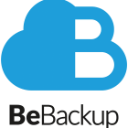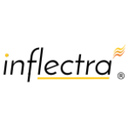TOP 12 version management tools for tracking changes
In any company, it's important to archive the various modifications made to a file, so that you can view them at any time.
But how do you keep track of the changes you've made?
Developers use versioning software to do just that. These tools are essential for keeping track of all the changes that have been made to a file.
Confused by all the solutions on offer? Wondering which is better, a decentralized version or a centralized version?
Find out in this article what a versioning tool really is, and what the best solutions on the market are.
What is versioning?
Versioning tools: a valuable archive for developers
Before getting to the heart of the matter and revealing the different versioning solutions available, let's take a look at the usefulness of this type of software.
Version control software, sometimes called VCS for Version Control System, is a tool that records, tracks and manages multiple versions of a file or source code. It provides a history of changes made, the date and time they were saved, and enables recovery of an earlier version in the event of an error or problem with a current version.
Version management tools have 2 main objectives:
- keep track of updates and modifications to versions of an application or software,
- optimize collaborative working by managing multiple versions of the source code.
👉 F YI: versioning tools can sometimes be called SCM (Source Control Management) and are actually source code management systems. These are software programs used to manage different versions of source files.
Centralized vs. decentralized version management
Centralized repository
Here, the system is hosted locally and provides a single directory for all users. This prevents multiple users from modifying a file at the same time. Only the first user to open the file can make modifications.
This type of centralized management offers advantages in terms of reliability, but also disadvantages due to the impossibility of exchanges between repositories and between local copies.
Decentralized repository
In the case of a decentralized (or distributed) system, and in contrast to centralized management, developers have their own repositories and their own local copy. Here, each developer can work at his or her own pace on his or her local repository.
The advantages of this management system are numerous:
- you can work offline,
- greater security thanks to the existence of several repositories,
- communication between repositories and the ability to clone them and then read and write from one repository to another.
🔎 Zoom on the list of the 12 best version management software (non-exhaustive).
Comparative table of the 12 best release management programs
1 of 8
 Apache Subversion |  AWS CodeCommit |  BeBackup |  Gitlab |  GitHub |  Google Cloud Source Repositories |  Microsoft Azure Backup |  SpiraTest |
|---|---|---|---|---|---|---|---|
| For all companies | For all companies | For all companies | For all companies | For all companies | For all companies | For all companies | For companies with more than 1 employees |
| See software | See software | See software | See software | See software | See software | See software | See software |
| Learn more about Apache Subversion | Learn more about AWS CodeCommit | Learn more about BeBackup | Learn more about Gitlab | Learn more about GitHub | Learn more about Google Cloud Source Repositories | Learn more about Microsoft Azure Backup | Learn more about SpiraTest |
List of the 12 best version control software
Ansible Documentation
Ansible Documentation is the official resource center for everything to do with Ansible automation. It follows a semantic versioning system (X.Y.Z), making it easy to find your way between core, community and enterprise versions.
Are you developing a role, a module or a collection? Each version is documented independently, with its own specific features, dependencies and examples. Handy for avoiding compatibility errors or prod surprises. And because a good dev is also a good reader (sometimes), the doc also offers a clear history of changes, contribution guides and best practices.
Highlights:
- clear navigation between core and community versions,
- numerous resources for contributors,
- documentation updated with each release,
- structured semantic versioning.
Flexible, precise and, above all, versioned from head to toe 📚.
Apache subversion
Created in 2000, Subversion is a centralized version control system (SVN). The tool lets you work on a specific part of a project, while limiting access to the entire source code. It is thus appreciated by developers working on projects requiring greater confidentiality.
Highlights :
- supports empty directories,
- easy to learn and use,
- space-saving binary differential storage,
- ability to add comments to each new version.

Apache Subversion
AWS CodeCommit
AWS CodeCommit is a Git release management service managed entirely by AWS. It hosts private, secure repositories in the cloud. CodeCommit offers the classic Git functions: commits, branches, merges and pull requests. Perfect for infrastructure-free collaboration. Files are encrypted in transit and at rest. Access is controlled via IAM, according to your own security policies. No server to maintain, automatic redundancy, high availability: the service grows with your needs.
Highlights:
- private, secure and scalable Git service;
- automatic encryption and IAM control ;
- seamless integration with AWS CI/CD tools;
- maintenance-free, scalable and always available.

AWS CodeCommit
BeBackup
BeBackup is first and foremost Cloud backup software designed for IT service providers and corporate IT departments. BeBackup's conviction is to offer a secure service while giving you the freedom to choose where you want to host your backups. Would you prefer to host your data on your own servers? Data center hosting? The choice is yours!
Highlights :
- unlimited, configurable versioning
- flexible solution,
- hosting costs among the lowest on the market,
- local copy and fast restore of backups.

BeBackup
GitLab
GitLab is a decentralized version control tool . With GitLab, developers can simultaneously edit source code, make changes and have an overview of all changes made.
Highlights :
- free hosting on a private server,
- free continuous integration,
- interface adaptable to your screen size,
- integrated development environment.

Gitlab
Github
GitHub is the best-known decentralized version control system on the market. The tool acquired by Microsoft in 2018 is particularly popular with developers working on open source software.
Strengths:
- huge user base,
- personal dashboard for tracking issues and pull requests,
- creation of several independent "local branches",
- collaborative features (task assignment, authorizations, roles, etc.).

GitHub
Google Cloud Source Repositories
Google Cloud Source Repositories is a Git version management solution fully integrated into the Google Cloud ecosystem. It enables you to host private source code, with a high level of security and performance. This service gives you access to your Git repositories from Cloud Console, with direct integration to Cloud Build, Stackdriver, and IAM. Every commit, every branch, every merge is tracked. And you can even connect your GitHub or Bitbucket repositories to monitor everything from a single location.
Highlights:
- secure Git hosting in Google Cloud,
- native integration with GCP services,
- advanced source code search,
- multi-depository support and connection to GitHub.
A tool made for teams already in the Google galaxy, or ready to set foot in it 🚀.

Google Cloud Source Repositories
Microsoft Azure Backup
Microsoft Azure Backup is a version control system from Microsoft. Previously known as Team Foundation Server (TFS), it offers a set of on-premises hosted development tools.
Key features :
- enables continuous integration,
- free version for individuals and small teams,
- easy administration and integration with other Microsoft products,
- can be used as a backend for several IDEs.

Microsoft Azure Backup
Octopus Deploy
Octopus Deploy orchestrates your deployments, versioning and environments without lifting a finger. This automation service combines Git and configuration as code to store each pipeline in a single repository. You choose the branch, trigger the release, Octopus rolls out the red carpet to Kubernetes or your server. Immutable snapshots, high availability and readable logs always put the right version in the right place. All without sloppy scripting or cold sweat, I promise.
Highlights:
- integrated configuration as code ;
- fine-tuned management of branches and environments;
- deployments to cloud, container or on-premise ;
- immutable snapshots and high availability.
Plutora
Plutora is a software release management platform designed for DevOps and IT teams. It centralizes deployments, workflows, environments and releases in a clear dashboard. You can track every version, every dependency and every bug in real time. Plutora connects your tools (Jira, Git, Jenkins...) to create complete traceability of the software lifecycle. A real control tower to avoid crashes in production.
Highlights:
- global view of releases and environments ;
- integration with key DevOps tools
- real-time tracking of deliveries;
- automated workflows and validations.
Spinnaker
Spinnaker is an open source continuous deployment tool designed by Netflix. It manages your pipelines, artifacts and application releases like a boss. You define your stages, your environments, your conditions. It delivers, monitors and, in the event of a problem, even cancels the deployment automatically. Multi-cloud, multi-repository, Spinnaker ensures clean, traceable versioning, from build to prod. Even large projects benefit.
Highlights:
- advanced orchestration of deployment pipelines ;
- support for multi-cloud environments
- automated deployment, including rollback;
- fine-tuned artifact and version management.
SpiraTest
SpiraTest is a test management, requirements and bug tracking tool, and also offers version management functionality. The solution gives you total traceability throughout your test cycle.
Highlights :
- unlimited number of tests, requirements, tasks and users ;
- complete traceability;
- available hosted or on site, and on all devices via your browser;
- over 45 integrations (Jira, Microsoft Azure DevOps, etc.).

SpiraTest
How to choose your versioning tool
Summary table of 12 versioning programs
| Software | Type of user | Key benefit | 3 Key features | Entry price |
|---|---|---|---|---|
| Ansible Documentation | Developers, contributors | Semantically versioned documentation | version navigation, contribution guides, best practices | On request |
| Apache Subversion | Centralized dev teams | Mature centralized version control | file locking, empty directories, differential storage | On request |
| AWS CodeCommit | DevOps teams on AWS | Infrastructure-free private Git repositories | native encryption, IAM control, CodeBuild/CodePipeline integration | Free offer |
| BeBackup | IT & MSP services | Unlimited and flexible versioning | customizable versioning, fast local copy, low hosting costs | On quotation |
| GitLab | DevSecOps | All-in-one DevSecOps platform | integrated CI/CD, Git repository, security scans | Free offer |
| GitHub | Individual devs & teams | Collaboration + rich ecosystem | pull requests, Actions, Packages | Free offer |
| Google Cloud Source Repositories | Teams on GCP | Google Cloud native Git | Cloud Build integration, IAM, Cloud Shell editor | On quotation |
| Microsoft Azure Backup | Azure IT Admins | Native backup + versioning | incremental backup, restore, automation | From €4 .4240 + used storage / month |
| Octopus Deploy | CI/CD teams | Automated & versioned deployments | graphical pipelines, immutable snapshots, rollback | From €314.05 / year |
| Plutora | Large DevOps / PMO teams | Release control tower | real-time dashboard, Jira/Git integrations, dependency tracking | On request |
| Spinnaker | Multi-cloud DevOps | Open source multi-cloud deployment | advanced pipelines, auto rollback, artifact management | Free |
| SpiraTest | QA & project managers | Test + version traceability | incident management, version tracking, reporting | On quotation |
Criteria to consider when choosing a tool
Choosing a versioning tool isn't just a matter of ticking boxes. It's about making sure it fits your project, your team and your technical constraints.
Start by assessing the type of repository you need. Centralized or decentralized? The former is simpler to manage, the latter offers more freedom, especially in telecommuting or open source.
Also look at integration with your existing tools: IDE, cloud platform, CI/CD solution, ticket management... The less friction, the better you sleep at night.
Security is non-negotiable:
- encryption,
- access control,
- traceability of commits...
...everything must be ironclad. Especially if you work in a regulated company or with sensitive data.
Don't forget scalability. Your project may be small today, but it can grow quickly. Choose a tool capable of keeping pace without exploding in flight.
Finally, the user experience is more important than you might think. A clear interface, up-to-date documentation, an active community... The less time you spend reading Stack Overflow, the more time you save on deadlines.
Our selection criteria
To present this selection of software, we have used a number of criteria:
- centralization: as mentioned above, some software is decentralized, enabling telecommuting, while others offer a centralized system, requiring connection to a local server;
- storage space: this type of tool needs to retain all modified files, so it is essential that the chosen tool offers unlimited storage space;
- updating: the software must ensure regular updating and take account of real-time file modifications, to avoid repetitive work and wasted time;
- cost: the price of a versioning tool varies according to a number of criteria (functionality, performance, speed of execution, etc.).
Versioning tools in a nutshell
Versioning tools are indispensable for storing your files while preserving the chronology of changes made. This article has enabled you to compare the different solutions on the market.
Now it's up to you to decide which software is best suited to your characteristics and needs.
☝️Lorsque you opt for paid tools, don't hesitate to explore all their nooks and crannies thanks to the free trial versions!
Article translated from French